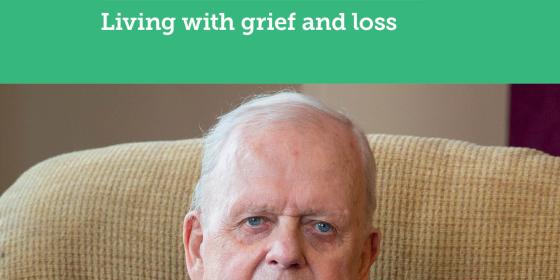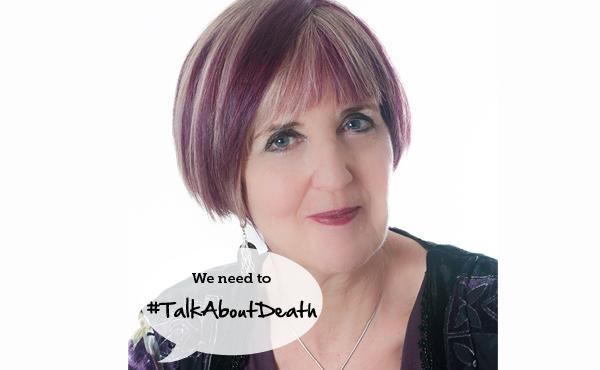
THE END. It comes to us all. Yet, it’s still so hard for us to talk about. As we age, we naturally begin to think about it more and wonder what might happen. We fear long illnesses, being a burden, mounting indignities…
But we need to talk about death as it’s inevitable. If we can begin to talk about it sooner, rather than leaving it to the eleventh hour, we can prepare those closest to us. We can also help to fulfil the wishes of our loved ones.
Talking about death with family and friends can bring relief, closeness and understanding. It may feel difficult or awkward to start a conversation, but many people feel more relaxed once they understand how things might be.
Obviously, it’s hard to imagine life without a partner by your side, or particular family members or friends, but it can be helpful to start talking about it. People often fear ending up alone or isolated so the more you can talk, and the earlier you can think about what to do, the more power you will garner to make plans.
Facing death with those closest to you can actually bring relief, even happiness. It gives you time to make plans; to prepare; to put things in order. It helps you enjoy the time you have left. This can help those left behind as there are no regrets, confusions or surprises.
It can actually make every day, every sunset, every good conversation or enjoyment of something - music, a play, a grandchild’s giggle, a new experience - enriching, instead of just sad.
Making the conversation more bearable
It can be quite difficult to start a conversation about death and dying and yet, once you start, you may find that those around you are more than willing to discuss it. They may have questions and uncertainties that you can answer and it can actually be a relief to have an open conversation about your wishes and desires. It can bring you closer and put any unspoken worries to rest.
Simply set aside an hour and sit quietly together over a cup of tea. You may need to talk about the practicalities, your final wishes and clear up any misunderstandings. You can discuss your funeral wishes and what to do with belongings. You can look at any relevant paperwork together and make sure you discuss where to find things.
When you talk about death and dying, it’s worth remembering:
- you are not alone - everyone has to face it, so it’s important to start talking as early as possible if you can
- it’s positive to talk through any fears or worries, and enable others to do the same
- you can think about how you want your later life to be, and how to keep in contact with those who matter to you
- you may need time to process feelings and thoughts - some people decide to get counselling or therapy to think through what they want around their death
- you may need to get legal advice, make a Will and get paperwork in order. Older people’s charity, Independent Age, have online and printed information on how to prepare, including a free guide, Planning for the end of life.
Coping with the loss of a partner
One of the hardest things to face is the loss of a beloved partner. The grief can seem too enormous for people to come to terms with, so thinking ahead of time of what you might do, once newly single, is important so you can get support.
There is no ‘right’ way to grieve, everyone does it in their own way. However, it’s important for your physical and mental health not to isolate yourself. Going into a bunker and closing the lid is understandable, but not healthy.
Life will not be the same, but it can be good again in the future and there will be new moments of laughter and joy. The most important thing is to talk about your feelings, spend time with friends who knew the person and remember and cherish the good times.
And, if in time you wish to, there’s nothing wrong with having a new companion. Friendship, laughter, closeness, intimacy, sexual pleasure… these are very important parts of being alive as we age.
Making preparations together
It’s essential to discuss our final wishes ahead of time. People can plan their funerals, even pay for them. They can specify what happens, what music is played or readings are read out. Planning ahead like this can give family and friends space to feel and cope when the time comes.
It can often feel difficult for an older person to raise the subject of their death with their adult children, especially if they’re very close. Family members may feel fear and anxiety, embarrassment and sadness at the mention of the subject. However, you can reassure them, listen to their fears and let them know you have come to terms with things. This may even mean they are able to think about their own death.
Leaving no stone unturned
It’s horrible to have regrets so it’s important to say all the things you need to while you have the chance. It can help you feel more relaxed if you:
- Make up with people you have fallen out with, or at least decide you are happy to leave things as they are
- Tell the people you love that you love them – especially if you haven’t said it. It’ll mean a huge amount when you are gone
- Write letters or cards to people, thanking them for things you appreciate
- Apologise for any misdemeanours which might still be bugging you, even after many years. It’s never too late to say sorry - it’ll give you peace of mind.
Wellbeing and contentment at the end
Inevitably, as we face ‘The End’ we begin to think back over the early years of our lives, and early experiences can begin to loom large. For some people it can be an interesting investment to have some counselling and psychotherapy – even at this late stage – as it can bring relief. Therapists can help you to talk about your fears around death and dying.
I’ve seen clients tormented to the last with pain about what happened in childhood, which seems to come back vividly as we age. How good would it be to lay any painful experiences or memories to rest, and leave our life on earth feeling contented or satisfied?
We all need to talk about death in order to live life to the full. This can simply mean enjoying each new day as it comes and doing all the things you want to do, while you can. After all, you deserve a good ending, just as much as you deserve a good, purposeful, fulfilling life.
For free advice, information and support, visit www.independentage.org/TalkAboutDeath
We’d love to know what you think. Join the conversation at #TalkAboutDeath


 Your most popular funeral songs revealed
Your most popular funeral songs revealed